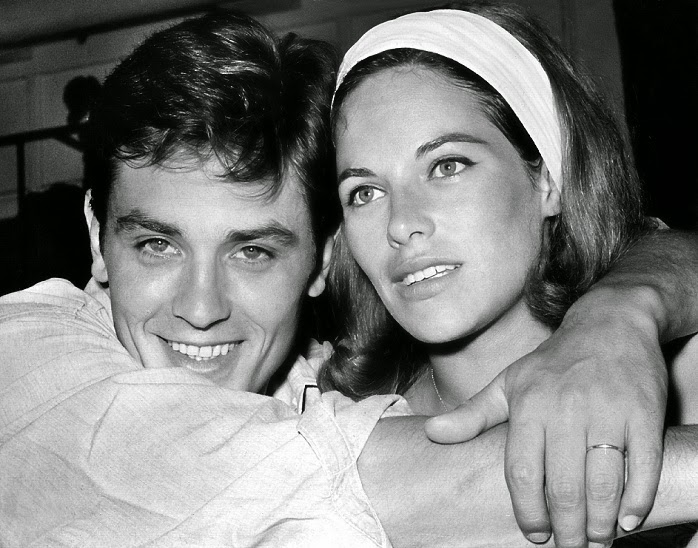If Those Eyes Could Talk... Monica Vitti
The high priestess of frosty sensuality, Italian actress Monica Vitti
was trained at Rome's National Academy of Dramatic Arts. Upon her
graduation, she immediately launched her professional stage career; in
1954, she made her first film, Ettore Scola's
Ridere Ridere Ridere. Monica is best known for her starring roles in films directed by Michelangelo Antonioni during the early 60s. After working with Antonioni, Vitti changed focus and began making comedies, working with director Mario Monicelli on many films. Vitti's first film role was in Edoardo Anton's Ridere Ridere Ridere (1954) but her first widely noted performance was at the age of 26, in Mario Amendola's Le dritte (1958). In 1957 she joined Michelangelo Antonioni's Teatro Nuovo di Milano and later played a leading role in his internationally praised and award winning film L'avventura
(1960) as a detached and cool protagonist drifting into a relationship
with the lover of her missing girlfriend. Giving a screen presence which
has been described as "stunning" she is also credited with helping
Antonioni raise money for the production and sticking with him through
daunting location shooting. L'avventura made Vitti an
international star and one of Italy's most famous actresses of the 20th
century. Her image later appeared on an Italian postage stamp
commemorating the film and cementing her status.
Vitti received critical praise for starring roles in the Antonioni films La Notte (Night, 1961), L'Eclisse (Eclipse, 1962) and Deserto Rosso (Red Desert, 1964), which are often cited with L'avventura as a series. After her relationship with Antonioni ended, the two did not work together again until Il mistero di Oberwald (1980).
Vitti's made only two English language films. The first was Modesty Blaise (1966), a mod James Bond spy spoof with Terence Stamp and Dirk Bogarde which had only mixed success and received harsh critical reviews, I watched it a while back and I can tell you that it's a treat to watch however the plot is childlike and very immature. The other English film was Michael Ritchie's An Almost Perfect Affair (1979) with Keith Carradine which takes place during the Cannes Film Festival.
Michelangelo Antonioni and Vitti met in the late 50s, and their relationship grew stronger after L'Avventura was made, because it was the film that shaped both their careers. However, by the late 60s, they didn't make any movies together, making the relationship strained until it officially ended. In a later interview, Vitti stated that Antonioni ended their relationship. Antonioni explained their feminism cinematic movement as, "I especially love women. Through the psychology of women, everything becomes more poignant."
Michelangelo Antonioni and Vitti met in the late 50s, and their relationship grew stronger after L'Avventura was made, because it was the film that shaped both their careers. However, by the late 60s, they didn't make any movies together, making the relationship strained until it officially ended. In a later interview, Vitti stated that Antonioni ended their relationship. Antonioni explained their feminism cinematic movement as, "I especially love women. Through the psychology of women, everything becomes more poignant."



















Comments
Post a Comment